An estimated 38% of Americans know someone with Down syndrome, reports the Global Down Syndrome Foundation.
At many of our locations, CORA houses expert physical, occupational and speech language therapies under one roof ready to assist children and patients of all ages dealing with a range of diagnoses. At every location, programs like CORAkids for pediatric physical therapy, and our highly-trained clinicians have proven to produce positive outcomes for the children and families we gratefully serve.
Down syndrome is one of those conditions we frequently see and serve. Surprisingly, according to the Global Down Syndrome Foundation, the population of people in the US with Down syndrome is currently unknown. What we do know is 38% of Americans know someone with Down syndrome, a condition that causes physical and mental developmental delays and disabilities.
Thankfully, SLPs at CORA are well-trained in helping patients with Down syndrome excel in comfortable environments designed to improve feeding, swallowing and speech and language development.
Jamie Sypniewski, one of our fabulous SLPs and expert in working with patients and families, sat down to answer some common questions including the role of the SLP in supporting patients with Down syndrome to provide the skills necessary to communicate more effectively.
What is Down Syndrome?
Down syndrome is a chromosomal disorder caused when abnormal cell division results in an extra full or partial copy of chromosome 21. Down syndrome is associated with a varying degree of intellectual disability, developmental delays, distinct facial features and low muscle tone. It is the most common genetic chromosomal disorder effecting 1 in every 700 babies born in the United States.
How Does Down Syndrome Affect Speech and Language Development?
Individuals with Down syndrome typically have a delay in language acquisition and vocalization most commonly attributed to weak or poor oral motor control, frequent ear infections and cognition. These differences lead to receptive language being stronger than expressive language. Language development occurs in the same order as their typically developing peers, just at a slower rate.
How Does Down Syndrome Affect Feeding and How Can Your SLP Help?
Due to anatomical and physiological differences such as low muscle tone, small mouth size, thicker tongues and a narrow, high-arched palate, individuals with Down syndrome often take longer to learn how to coordinate the muscles for sucking, chewing and/or swallowing resulting in feeding and swallowing difficulties. SLPs are the experts in feeding and swallowing and are trained in a variety of ways to help individuals improve their feeding skills and achieve safer swallowing.
What Are Some Ways SLPs Help Bridge The Language Gap?
Sign language gives preverbal children a way to express their wants and needs often reducing anxiety and frustration. When used together with gestures and spoken language, sign language can support speech and language development and helps children with developmental delays learn to communicate. Along with sign language and gestures, both low-tech and high-tech Assistive Communication Devices can also be implemented to help bridge the language gap.
The Importance of Early Intervention for Children with Down Syndrome
Due to the impact of Down syndrome on speech and language skills, early intervention is key to set the child and family up for long-term success. Speech-language therapy can help children with Down syndrome improve their communication skills and use language more effectively by developing the early skills necessary for communication.
Build Connections Through More Conversations and Important Topics About Communication Disorders.
In case you missed it, here’s some of what we’ve covered so far during BHSM, a celebration for and by American Speech-Hearing-Language Association (ASHA) to build connections and provide life-altering treatment for those living with communication disorders.
- Don’t Speak, I Know What You’re Saying: How We Communicate Effectively Without Words
- 5 Reasons Why It’s Important to Act Early If You’re Concerned About Your Child’s Development
- A Lifetime of Benefits from Early Intervention Speech-Language Pathology
- CORA Partners with Purple Communications to Offer Video Remote Sign Language Interpretation Services
But WAIT, we can’t give it all away! Check back next week to see what we have in store for you as we celebrate our Speech-Language Pathologists at CORA. Or you can find our CORA location nearest you to speak with a licensed SLP today.
